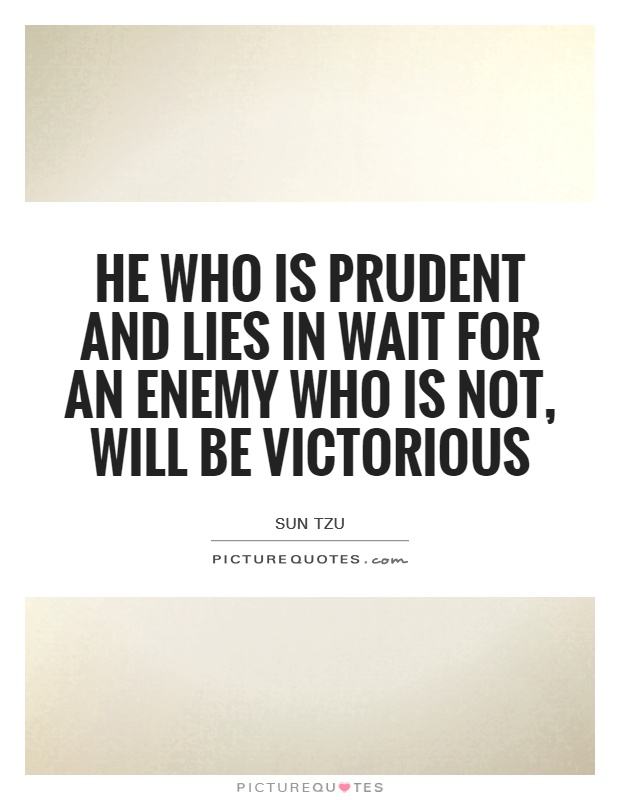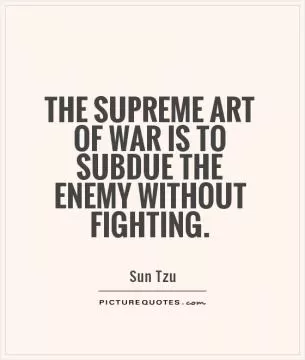He who is prudent and lies in wait for an enemy who is not, will be victorious

He who is prudent and lies in wait for an enemy who is not, will be victorious
In Sun Tzu's "The Art of War," the concept of prudence and strategic planning is emphasized as essential for achieving victory in warfare. The quote "He who is prudent and lies in wait for an enemy who is not, will be victorious" speaks to the importance of patience, foresight, and cunning in military strategy.Prudence in warfare involves careful planning, analysis of the enemy's strengths and weaknesses, and the ability to anticipate their movements. By being prudent, a commander can effectively position their forces, exploit the enemy's vulnerabilities, and capitalize on opportunities as they arise. This requires a deep understanding of the battlefield, the enemy's intentions, and the dynamics of conflict.
Lying in wait for an enemy who is not vigilant or prepared is a key aspect of strategic deception. By concealing one's true intentions, feigning weakness, or creating false impressions, a commander can lure the enemy into a trap and gain a decisive advantage. This tactic is often used to draw the enemy into a vulnerable position, isolate their forces, or provoke a hasty and ill-advised response.
Victory in warfare is not simply a matter of overwhelming force or superior numbers. It requires cunning, adaptability, and the ability to outmaneuver the enemy both on and off the battlefield. By being prudent and patient, a commander can exploit the enemy's mistakes, disrupt their plans, and ultimately achieve victory with minimal cost and risk.
Sun Tzu's teachings on prudence and strategic deception have been widely influential in military theory and practice. They emphasize the importance of intelligence, planning, and psychological warfare in achieving success in conflict. By understanding the principles of prudence and deception, commanders can outthink and outmaneuver their adversaries, turning the tide of battle in their favor.












 Friendship Quotes
Friendship Quotes Love Quotes
Love Quotes Life Quotes
Life Quotes Funny Quotes
Funny Quotes Motivational Quotes
Motivational Quotes Inspirational Quotes
Inspirational Quotes